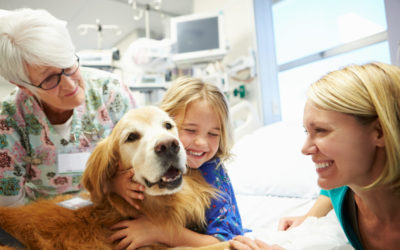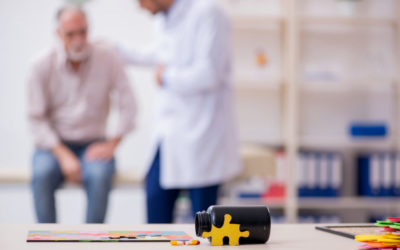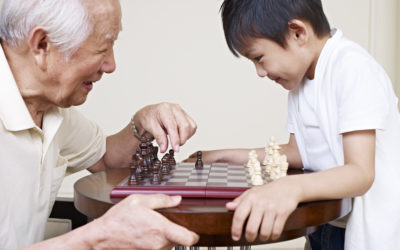Quick Hits
Daily brief research updates from the cognitive sciences

Recently I reported on one conundrum of learning in groups: that of optimal group formation i.e. should you group learners with similar ability or diverging ability for the best average learning outcomes.
That question seems to have been resolved. However, there remain other questions such as how does group interaction affect learning?
A recently published study by Stephanie Halmo et al. of the University of Georgia has given us some interesting new insights into this.
To do this the researchers recorded the conversation of students in breakout groups in collaborative learning tasks. They analysed the conversation and identified a number of meta-cognitive statements that helped to move learning forward these included asking for clarification, checking that the discussions and reasoning was guiding towards the actual goals of the group, but also, importantly, of correcting other students.
This correcting of other students seems to be particularly important – not just for the person being corrected but the whole groups. It is likely also the most difficult to do because of politeness or fear of conflict – yet this shows this is precisely the most important thing to do and serves the collective.
Another interesting feature and one that is counter intuitive is that long periods of silence were also indicative of better learning – in this group work we may often think of talkative groups as being the most effective but the data showed otherwise.
There could be multiple reasons for this: lack of attention, lack of deep thought, a constant barrage of chatter, etc. It goes against our intuitions because if we see groups chatting a lot, we perceive high collaboration and therefore assume effective learning. This applies to the group itself as well as the educator guiding this learning.
So, all in when learning in groups, do interact, but be thoughtful, guide towards the goal, and do correct others when suitable. That will make group learning more effective. And I’ve certainly just learned something.

Andy Habermacher
Andy is author of leading brains Review, Neuroleadership, and multiple other books. He has been intensively involved in writing and research into neuroleadership and is considered one of Europe’s leading experts. He is also a well-known public speaker, speaking on the brain and human behaviour.
Andy is also a masters athlete (middle distance running) and competes regularly at international competitions (and holds a few national records in his age category).
References
Stephanie M. Halmo, Emily K. Bremers, Sammantha Fuller, Julie Dangremond Stanton.
“Oh, that makes sense”: Social Metacognition in Small-Group Problem Solving.
CBE—Life Sciences Education, 2022; 21 (3)
DOI: 10.1187/cbe.22-01-0009
More Quick Hits
Petting (Real) Dogs Activates the Social Brain
There have been lots of studies into the positive impacts of having pets around us – but this study just published looked at brain activation patterns while being with a dog, petting a dog, and…
Metabolism Predicts Brain Health
Understanding the link between dementia, brain health, and various metabolic disorders such as obesity is important and gives us important clues in…
Super Agers Have Super Neurons
SuperAgers are those who live long, over 80, but retain their cognitive functions including a healthy functioning memory and seem to avoid neurodegenerative disorders such as Alzheimer’s…
How Nature Lowers Stress in Your Brain
Nature is overwhelmingly good for wellbeing but there are many chicken-or-egg problems with the research. This study…
Air Pollution In Childhood Changes Brain Structure
Recent research has shown some worrying impacts of pollution on the brain…
Think Like a Kid to Learn Better?
Think like a kid may sound like a good piece of advice – but with some interesting twists…






